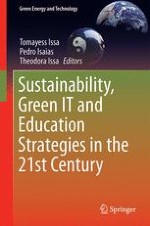2017 | OriginalPaper | Buchkapitel
Sustainability and Green Supply Chain Awareness in Nigerian Organizations
verfasst von : Ogubuike Chukwuemeka Inmpey
Erschienen in: Sustainability, Green IT and Education Strategies in the Twenty-first Century
Aktivieren Sie unsere intelligente Suche, um passende Fachinhalte oder Patente zu finden.
Wählen Sie Textabschnitte aus um mit Künstlicher Intelligenz passenden Patente zu finden. powered by
Markieren Sie Textabschnitte, um KI-gestützt weitere passende Inhalte zu finden. powered by
